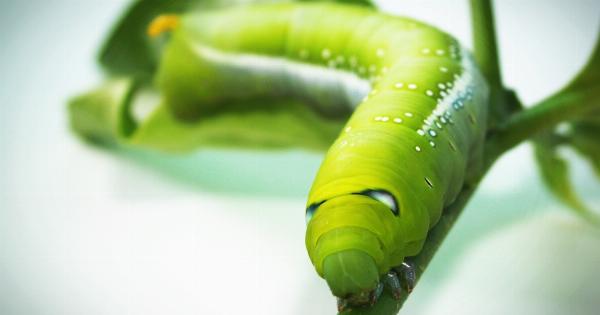In recent years, the demand for vegan alternatives to dairy products has grown exponentially. As more people adopt a plant-based lifestyle or seek to reduce their consumption of animal products, vegan cheese has become an increasingly popular choice.
However, with any food product, questions arise about its nutritional value and potential health risks. In this article, we will explore the realm of vegan cheese and address the concerns surrounding its safety and health implications.
Vegan Cheese: A Dairy-Free Delight
Vegan cheese, as the name suggests, is a dairy-free alternative to traditional cheese made from animal milk.
It aims to replicate the taste and texture of dairy cheese while catering to the dietary restrictions of those following a vegan or lactose-free lifestyle. Dairy products can cause various health issues for some individuals, such as lactose intolerance, allergenic reactions, and concerns related to saturated fat and cholesterol intake.
Vegan cheese offers a solution for people seeking to avoid these concerns but still enjoy the taste and versatility of cheese.
Understanding the Ingredients
When evaluating the healthiness of vegan cheese, it is essential to examine the ingredients used in its composition. Many vegan cheeses are made from plant-based sources, such as nuts, soy, coconuts, or root vegetables.
By using these ingredients, vegan cheese manufacturers avoid the risks associated with consuming animal products. However, certain vegan cheese brands rely heavily on processed ingredients, unhealthy fats, and artificial additives to replicate the taste and texture of dairy cheese accurately.
Therefore, it is crucial to be mindful of the ingredient list and choose vegan cheese made with wholesome, recognizable ingredients.
Evaluating Nutritional Content
While vegan cheese can be a nutritious addition to a balanced diet, not all varieties offer the same nutritional benefits.
Some vegan cheese alternatives contain significant differences in terms of protein, calcium, and vitamin content compared to traditional cheese. This variation depends on the base ingredients and the manufacturing process.
Certain vegan cheeses are fortified with essential nutrients that are naturally abundant in dairy cheese, such as calcium and B vitamins, ensuring vegans can meet their nutritional requirements. However, it is essential to read the nutrition labels carefully and select vegan cheese products that align with your dietary goals and needs.
Minding Sodium and Added Ingredients
One common concern with vegan cheese is its sodium content. Since salt can enhance the flavor, many vegan cheese manufacturers add salt or other sodium-containing ingredients to achieve the familiar tang and taste of dairy cheese.
Excessive sodium intake can lead to high blood pressure and other health issues. Therefore, individuals following a low-sodium diet should pay close attention to the sodium content in vegan cheese products and select options with lower or no added sodium.
Additionally, some vegan cheese brands incorporate artificial flavors, preservatives, and stabilizers, which may not align with a whole-food, plant-based philosophy. It is advisable to choose vegan cheese options with minimal or no artificial additives.
Beyond the Label: Processing and Manufacturing
The production methods employed by vegan cheese manufacturers also play a significant role in determining the healthfulness of the final product.
Just like traditional cheese, the processing of vegan cheese involves fermentation, culturing, and other techniques to achieve the desired taste and texture. While these methods are generally safe, it is important to note that some vegan cheese manufacturers might use additional processing steps or techniques that can affect the nutritional quality of the cheese.
Opting for vegan cheese produced through minimal processing and used traditional cheese-making techniques can help ensure a more wholesome product.
Choosing Wisely: Factors to Consider
To make an informed decision about the healthiness of your vegan cheese, consider the following factors:.
1. Ingredient Quality:
Check the ingredient list to identify natural and recognizable ingredients.
2. Nutritional Profile:
Review the nutritional content, paying attention to protein, vitamins, and minerals.
3. Sodium Content:
Take note of the sodium content, especially if you are following a low-sodium diet.
4. Artificial Additives:
Avoid vegan cheeses with excessive artificial flavors, preservatives, or stabilizers.
5. Processing Techniques:
Consider opting for vegan cheese made using traditional cheese-making methods and minimal processing.
By considering these factors, you can make a more informed decision about the vegan cheese you choose to include in your diet.
Vegan Cheese: A Part of a Healthy Plant-Based Diet
While concerns regarding the health risks of vegan cheese exist, it is important to remember that vegan cheese, when chosen wisely, can be a valuable addition to a balanced plant-based diet.
It offers a range of flavors, textures, and culinary possibilities that satisfy even the most discerning cheese lovers. By opting for vegan cheese made from high-quality ingredients, minimal processing, and without excessive artificial additives, you can ensure that your vegan cheese choice aligns with your health goals.
Moderation and Variety: Keys to a Balanced Diet
As with any food, moderation and variety are essential. While vegan cheese can be a flavorful and healthy alternative, relying too heavily on it or consuming excessive amounts can undermine the overall balance of your diet.
Embrace the abundance of plant-based foods available: fruits, vegetables, whole grains, legumes, and nuts, which contribute to optimal health and well-being. By incorporating vegan cheese in moderation and diversifying your diet, you can enjoy the benefits of a plant-based lifestyle while minimizing potential risks.
The Bottom Line
Vegan cheese can be a tasty and suitable alternative for those seeking to avoid animal products or decrease dairy consumption.
Though not all vegan cheeses are created equal, carefully evaluating the ingredients, nutritional content, sodium levels, and processing methods of different options can help you find a healthier choice. As with any food, it is essential to consider vegan cheese as part of a balanced and diverse diet. With awareness and mindful choices, vegan cheese can be an enjoyable addition to your plant-based lifestyle.


























